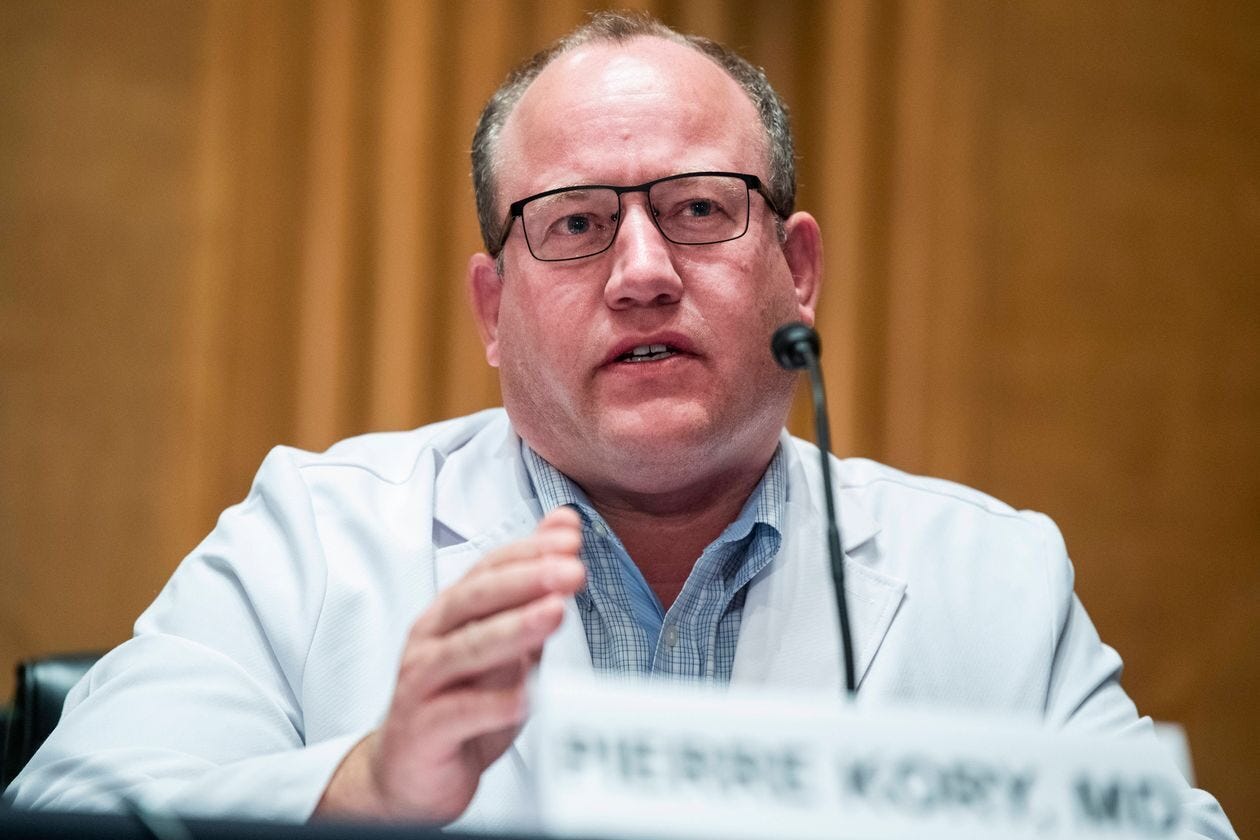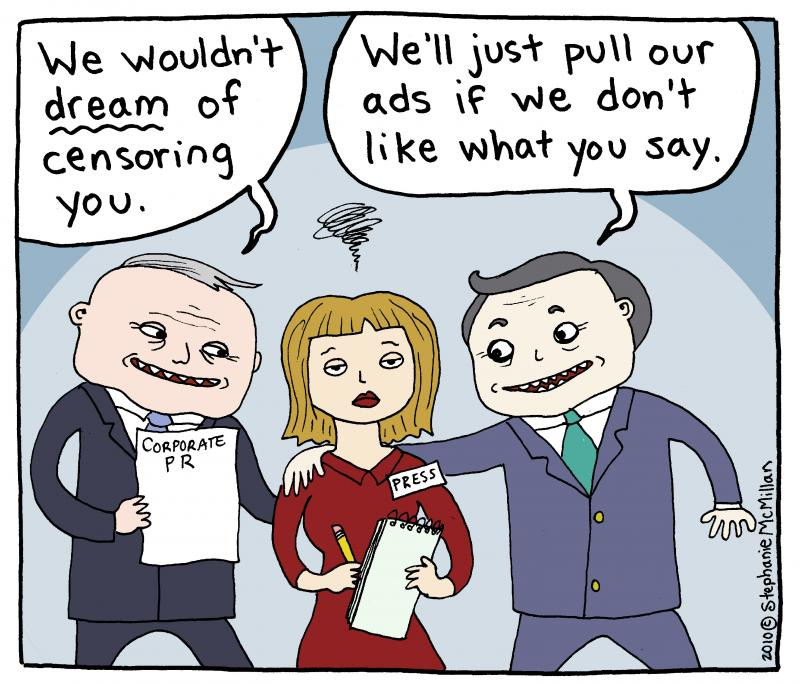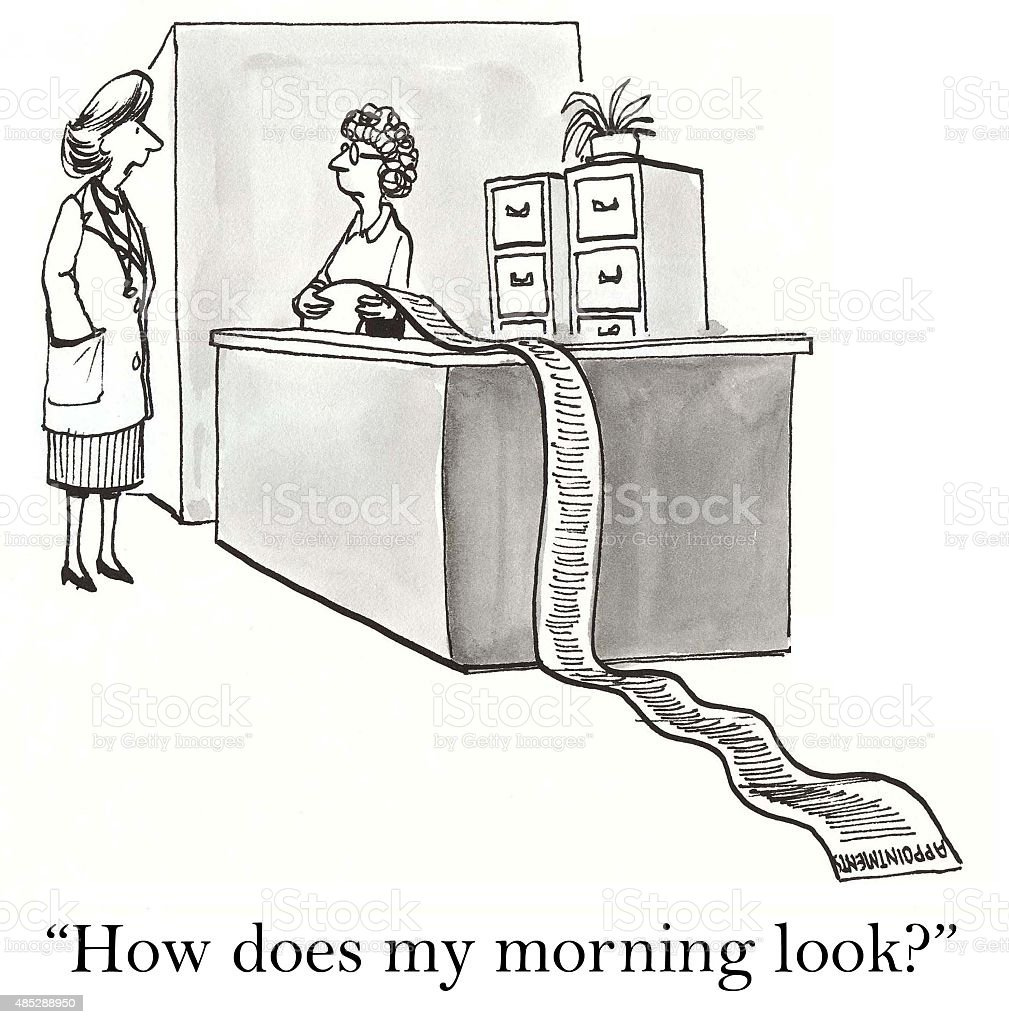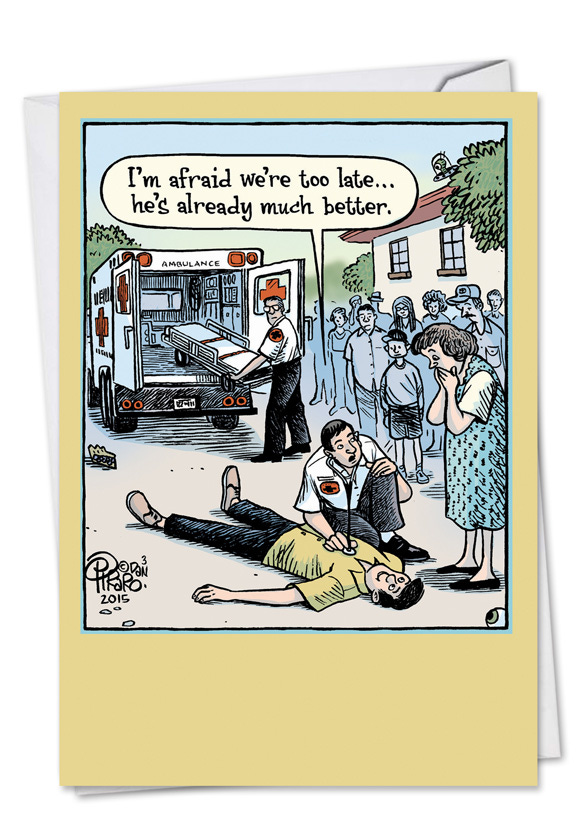How The Stars Aligned and We Finally Broke Through the Ivermectin Censorship
And how I found all those patients in the vast online wilderness that needed my help with COVID, Long Haul & Vax injury
What I remember most clearly is that Dr Pierre Kory was pissed and it showed.
He was red in the face and exasperated with the fact that he knew exactly how to help people suffering and dying with COVID-19 and yet he was being blocked at every turn and moreover dismissed as politically motivated.
He described Ivermectin as having “miraculous impact” based on “mountains of data that had emerged from many centers and countries around the world,” and even went so far as to say: “if you take it you will not get sick.”
Senator Ron Johnson wrote about the hearing in the Wall Street Journal a few months later:
He (Kory) described a just-published study from Argentina in which about 800 health-care workers received ivermectin and 400 didn't. Not one of the 800 contracted Covid-19; 58% of the 400 did.
Dr. Kory asked the National Institutes of Health to review his group's manuscript outlining dozens of successful trials and to consider updating its Aug. 27 guidance in which it recommended "against the use of ivermectin for the treatment of Covid-19, except in a clinical trial." On Dec. 10, Sen. Rand Paul and I sent a letter to the NIH requesting that it review Dr. Kory's evidence.
On Jan. 14, NIH changed its guidance to neutral by acknowledging the successful trials but determined "that currently there are insufficient data to recommend either for or against the use of ivermectin for the treatment of Covid-19." On Jan. 22 I sent an oversight letter asking what actions the NIH had taken to explore the use of repurposed drugs for treating Covid-19.
Before being removed from YouTube and other websites, Dr. Kory's opening statement had been viewed by more than eight million people. Unfortunately, government health agencies don't share that interest in early treatment. A year into the pandemic, NIH treatment guidelines for Covid patients are to go home, isolate yourself and do nothing other than monitor your illness.
Despite Youtube helping the government censor the dangerous “disinformation” the “damage” had been done. People started to go online in droves to seek out prescribers of Ivermectin.
The only reason I even realized this was that I was already part of a small telemedicine portal - a site for independent practitioners to connect with patients searching google for the keyword ivermectin.
On most telemedicine sites (like the main, larger one I also contracted with) patients would request a generic visit, or maybe a visit for a certain indication like a cough or UTI. However on this site patients could simply request ivermectin and then be matched with a doctor willing to prescribe it if they considered the reason appropriate.
For years this site had made up about 10% or less of my overall online practice - I would keep an eye on the site while working with my larger primary telemedicine network and pick up any patients who showed up - usually men requesting ED meds - but the traffic had always been relatively small.
Now the patient requests spiked up dramatically and then continued building for months, mostly through word of mouth.
Within 1-2 months it overtook the larger network I worked with and kept growing and at that point I decided to open up shop myself and put together my own website, first at drsyedhaider.com and later at mygotodoc.com.
This was in mid to late January 2021. I discovered I could post my name and website link on sites like exstnc.com, the FLCCC site and a couple other locations online where there were loosely curated lists of physicians willing to prescribe ivermectin arranged by state.
Around this time many US states started allowing physicians to practice without licenses or to obtain pandemic waiver licenses. I went from being available to patients in a handful of states to eventually having an online presence in 45 states.
The vast majority of patients came in from the top 4 most populous states: NY, CA, FL and TX, but there was a significant long tail of patients from all over the country who would frequently come and tell me I had to help them because there was literally no other doctor in their state willing to prescribe the meds they needed. In many cases their local urgent care or ER doctor would just hand them my number and say I can’t help you, but call him.
I quickly became so busy that I was working 16+ hour days 7 days a week for months - thoughts of apprenticing were pushed aside for what I then considered a far more pressing need that few enough were fulfilling.
I got mostly patients who just needed a preventive prescription, but 10-20% of the patients were acutely ill and I did my best to call them back ASAP, sometimes staying up late into the night so that they wouldn’t be pushed to the next day. I knew how important it was to get the meds started early.
Late January or early February Steve Kirsch called me up and told me about his research on Fluvoxamine. I had never heard of the drug being used for COVID, but I thought it sounded very promising.
At that point I had only treated about 20 acute COVID patients and although most did amazingly well, one of the elderly patients had been hospitalized (she had unfortunately called and started treatment too late).
After adding fluvoxamine to my protocol I didn’t see another COVID hospitalization for months.
One young patient did have a very negative psychiatric reaction to fluvoxamine and went to the hospital and was admitted overnight just to monitor that, but for the most part people did fine on it.
But at the same time I also greatly increased dosing on Ivermectin.
Initially I was prescribing very low and very few doses - that may have had an impact on the first hospitalization.
I also learned that a significant number of patients simply didn’t take the fluvoxamine despite my prescribing it and I couldn’t blame them. I would have hesitated to take it myself.
However I also heard a lot of feedback from patients who did take it and some of them were quite convinced that it was what made the biggest difference for them, rather than the ivermectin.
Overall I ended up treating 8000 acute patients with just 5 hospitalizations and no reported deaths. I also prescribed many thousands of preventive prescriptions and almost all the patients who committed to weekly or biweekly ivermectin have yet to catch COVID-19 even once. You’ll see some of them posting in the comments section here and on Twitter.
Pierre Kory wasn’t exactly right back in December 2020 - a minority of those who take preventive Ivermectin do seem to catch the illness (though its hard to say for sure given the high false positive rate of PCR that depends in large part on the prevalence in the community) .
But Dr Kory was right enough: ivermectin has proven in study after study to prevent the disease, and successfully treat both the acute and chronic illnesses that arise.
If he and others had been widely heeded we could have wiped out the virus early on, or at least saved countless lives and prevented a tsunami of chronic illness.
At that point in early 2021 I was probably just starting to realize that I had long COVID and how important it was to treat early and aggressively to prevent Long Haul disease developing in my patients.
I encouraged everyone to get the necessary supplements, vitamins and meds early so they would have them on hand to start as soon as possible.
Still many patients came in very late. They would start getting symptoms, think it was nothing, or just an allergy, and then on day 3 or 4 realize it was probably COVID then go get tested and on day 4 or 5 start looking for a doctor and then day 6 or 7 finally get the meds to start treating.
As time went on the COVID I was seeing mostly wasn’t as severe, but it got harder and harder to treat the minority of bad cases.
We had to dramatically increase ivermectin dosing and duration as the virus seemingly developed some resistance and had to add other medications like hydroxychloroquine, steroids, antibiotics, etc.
Mid 2021 I started to see a lot of Long Haulers - especially those from the first waves in 2020 who were finally realizing (like me) that they were chronically ill because of COVID.
Early on I saw amazing results with just ivermectin in Long Haul.
In many cases a few doses took care of even the most severe symptoms. But over time this started to change. Many people's chronic illness needed higher and longer dosing, and in some it didn’t work at all.
Dr Gustave Aguirre-Chang had published one of the earliest papers on long haul treatment - a case series using ivermectin showing 94% efficacy.
He noticed the same decreased efficacy and he assumed this was because of viral persistence and developing resistance. So he switched to Truvada, an old HIV drug with activity against COVID, and saw great results.
Meanwhile the vax injured has started appearing as well and I had added steroids, fluvoxamine, statins, plavix, colchicine, maraviroc and other medications to try in sequence for long haulers (there are even more options now).
I was vaguely aware of the Truvada protocol via patients who had heard about it, but not sure I needed to add it as people were improving with the other approaches and some prominent researchers like Dr Patterson of Incelldx had not been able to isolate replication competent viruses in patients - suggesting that it was just inflammation and not active viral replication causing the disease.
(I finally interviewed Aguirre Chang recently and based on his very positive results decided to add Truvada to my protocol, though it’s still too early to report results.)
Overall in my experience now treating thousands of long haul and vax injured patients 70% get better within weeks to months, another 10% within 3-6 months, another 10% within 6-12 months and the remaining 10% or so is very difficult to treat.
But this is a very vague set of highly variable patients. I’m not at all sure that the final 10% is truly intractable or just unable or unwilling to try everything that might help them.
A very small minority of all patients do everything I suggest and I have yet to see a single patient who followed all instructions and accepted all recommendations who did not get better.
Most patients pick and choose what they’re willing to do (no judgement: I would too!).
One relatively small long tail is patients who refuse meds and only want a "somewhat natural approach, comprised of either lifestyle and/or supplements - as a group they do tend to get better gradually, but it can be a long road (like my own recovery). Most of these patients don’t show up asking for help, but some do and we have been able to help everyone who did, often without any charge since registration and questions are always free at mygotodoc.
Another much larger long tail includes patients willing to try some meds but not others - ivermectin and hydroxychloroquine are the favorites. Far fewer are willing to try many others - fluvoxamine, or maraviroc for example - in the first case because of fear of psychiatric drugs and in the second because of high cost and many side effects.
There are also some recommended blood tests that many can’t afford. Supplements can be expensive since there is a long list that may be helpful.
There are some free procedures like blood and plasma donation that for one reason or another relatively few patients are willing to try.
Over time as I added more medications the protocol got more complicated and the instructions I sent people also got longer and longer.
Eventually even though I tried to explain the details people just couldn’t keep it all straight.
I began to have medical assistants call them to go over it again after the visits. Still people seemed to only absorb a tiny percentage of the information and would often make simple mistakes that they were warned against: like combining the wrong meds, not increasing them appropriately over time, suddenly stopping the meds when they felt better, etc.
I realized that in order to have the best chance of healing people they needed more education spread out over a much longer period of time. They also needed ongoing support at a reasonable price point.
I added a discounted monthly option for prescription management of long COVID at mygotodoc.com, but many were still only able to afford a single up front physician visit, which meant they needed an educational program that didn’t rely on repeated meetings with me.
In the next post I’ll explain what I did to fix this basic educational issue, along with how I discovered I could effectively raise more awareness on Long COVID and Vaccine injuries and some of my visions for the future of high touch, high quality telehealth care.









Pierre, was the boy who exclaimed, “The Emperor, he has no CLOTHES!” The testimony, heard what round the world!!!! 😁❤️
Dr H, you were/are the Dr that honoured his oath. You were the Dr that sacrificed a lot as you stood up to injustice. You were a Beacon of Hope for so many. You're a true hero 🙏❤️